KEEPING OUR PROMISES
150 years of making the world a better place
When John R. Buchtel saw the cornerstone laid for Buchtel College, he pledged that the new school, built on a hilltop overlooking the city, would be an institution of honor and pride to Akron and the state.
Over the next 150 years, The University of Akron (UA) kept and exceeded the promise of its founder, rising to become one of Ohio’s most influential public urban research universities — whose impact has been felt around the globe.
Here are 15 ways in which UA has positively shaped the state, country and world.
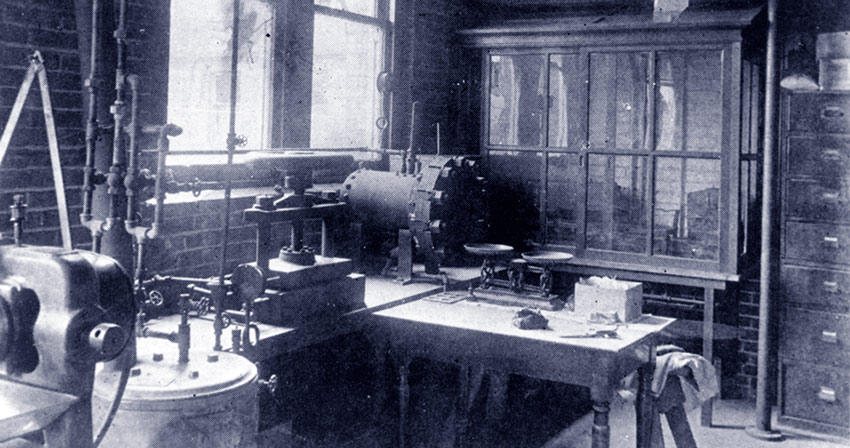
The world’s first Rubber Chemistry course was taught in the Knight Chemical Building. Image is circa 1909-1931.
World’s first rubber chemistry classes
Dr. Charles M. Knight, founder of the Chemistry Department at Buchtel College, began teaching the world’s first college courses in rubber chemistry in 1909, contributing to the rubber boom in Akron and paving the way to the University’s pioneering efforts in polymer science and polymer engineering.
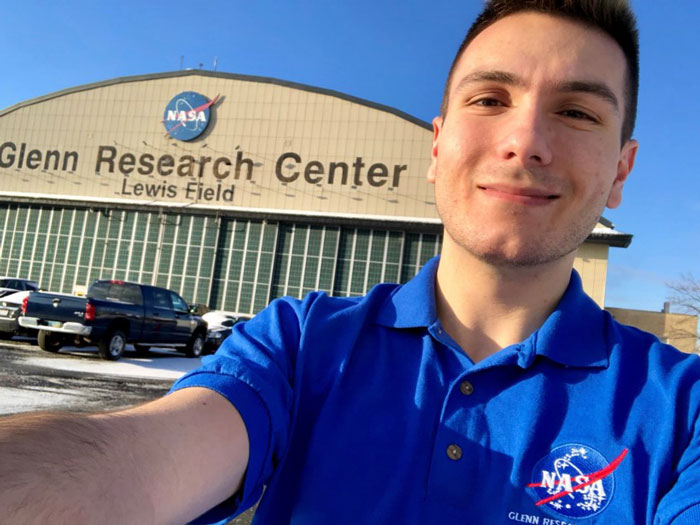
In 2018-19, we placed students in a total of 1,106 different engineering co-op positions, including at NASA's Glenn Research Center.
One of the first
engineering co-op programs
In 1914, UA established its College of Engineering and one of the first five engineering co-op programs in the country, partnering with industrial giants such as The Goodyear Tire & Rubber Co., the B.F. Goodrich Co. and the Firestone Tire and Rubber Co.
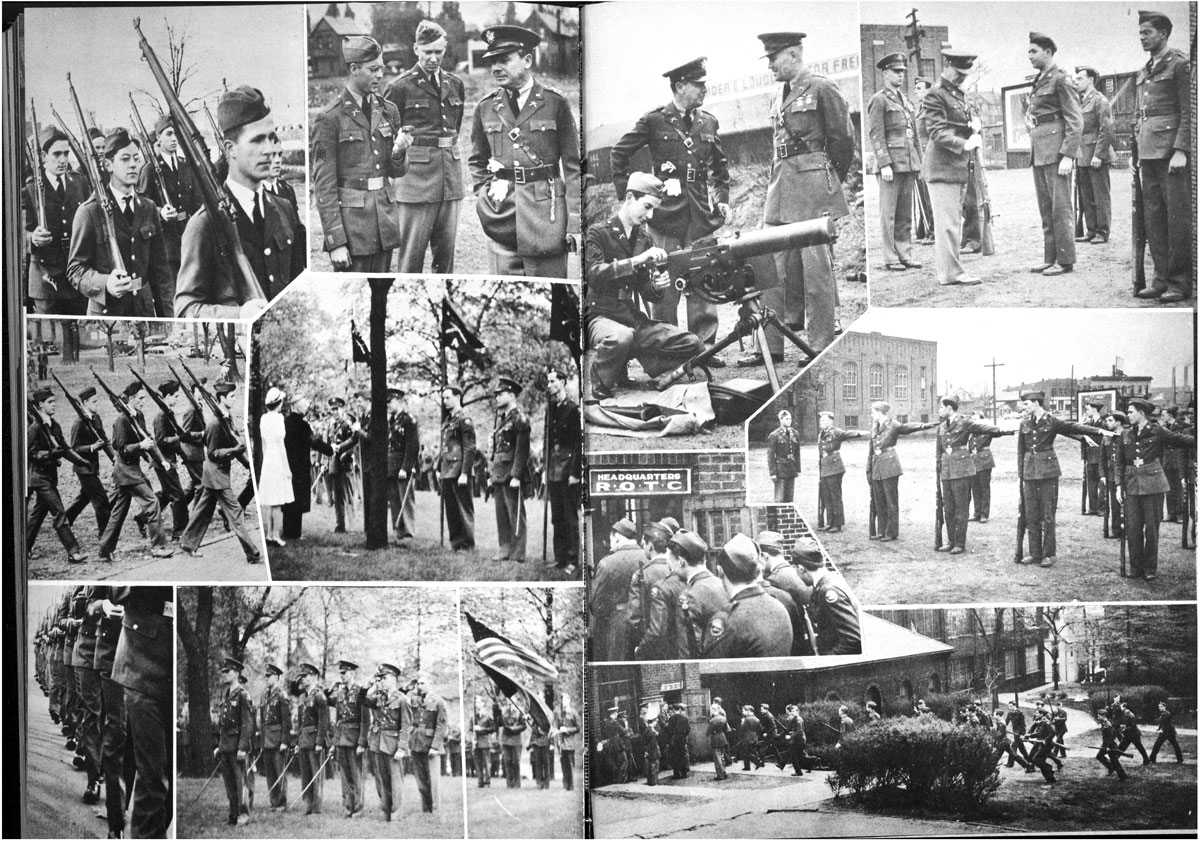
This page from UA’s 1940 yearbook, The Tel-Buch, shows images of Akron ROTC cadets from 80 years ago.
One of the first ROTC units
Following World War I, the U.S. government established one of its first Reserve Officers’ Training Corps (ROTC) units at UA in 1919, which has been maintained to this day.
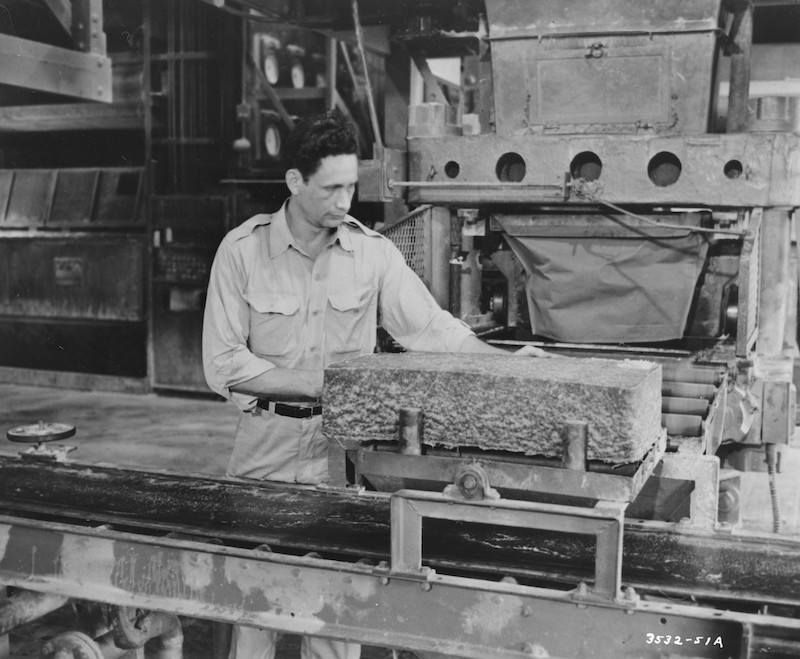
UA's Rubber Technical Institute developed and manufactured synthetic rubber during World War II.
Aiding the Allies in WWII
When Japanese forces cut off the United States’ access to supplies of natural rubber in World War II, the government called upon UA to create the Rubber Technical Institute—a consortium of companies and researchers—to develop and manufacture synthetic rubber to aid the war effort.
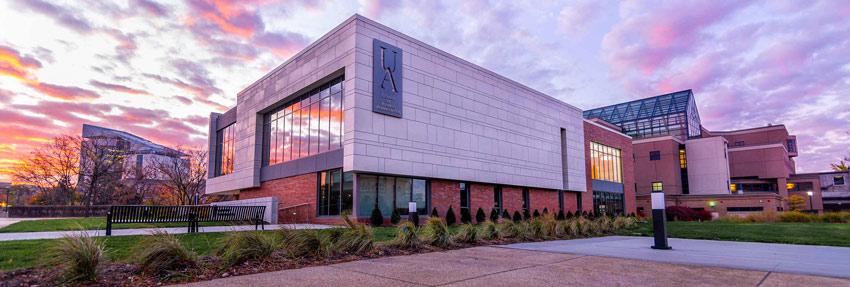
Globally recognized business education
In 1966, UA’s College of Business achieved accreditation from the Association to Advance Collegiate Schools of Business (AACSB), the hallmark of excellence in business education, and has been continuously reaccredited ever since. Today, of the 16,500-plus schools offering business degrees worldwide, only about 1% hold dual AACSB accreditation in business and accounting — and the College of Business is one of them, putting it within an elite group of business schools.
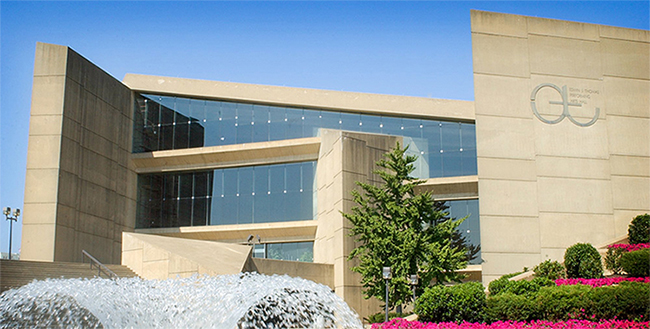
Excellence in the arts
E.J. Thomas Performing Arts Hall, the region’s flagship performance venue, opened in 1973, and was hailed by the late New York Times architectural critic Ada Huxtable as "a superb structure…of which any world capital could be proud.” UA is also home to the nationally recognized Emily Davis Gallery of art, one of the country’s oldest and largest collegiate steel drum bands, and one of only two national centers of choreography in the U.S.

Premier institute of applied politics
The Ray C. Bliss Institute of Applied Politics — established in 1986 and named after alumnus Ray C. Bliss, chairman of the National GOP from 1965 to 1969 and chairman of the UA Board of Trustees in 1981 — is one of the nation’s premier bipartisan centers of research, instruction and experiential learning in applied politics. Under the direction of Dr. John C. Green, a respected political scientist frequently quoted in local and national media, many Bliss alumni have advanced to leadership positions in government and related professions around the country.
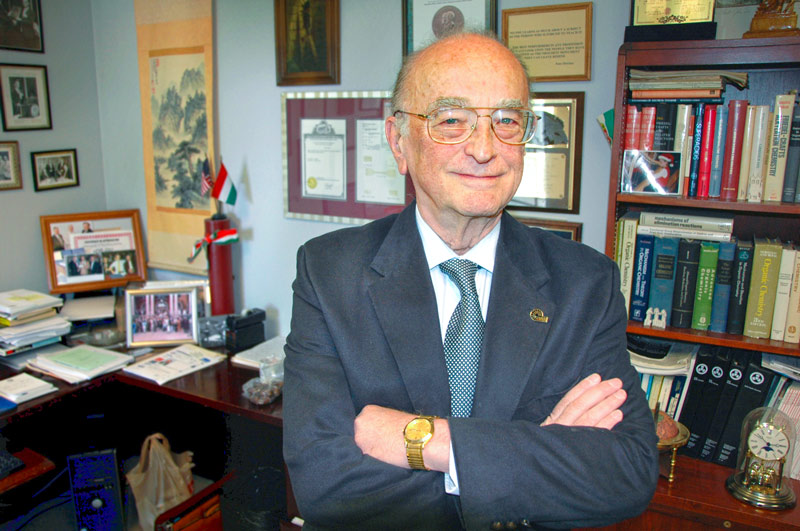
Pioneer in polymers
The world’s first College of Polymer Science and Polymer Engineering was established at UA in 1988. It is home to distinguished scientists such as Dr. Joseph Kennedy (above), who has garnered more than 120 patents in 60 years for his inventions, including life-saving medical technologies. The University remains an international leader in polymer research and education, and is at the forefront in developing new, sustainable polymers to help create a circular economy.
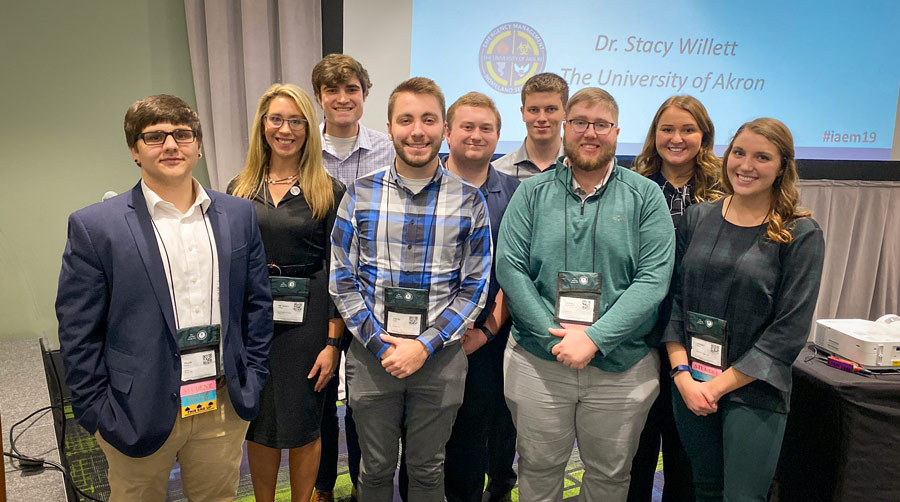
Leader in emergency management and homeland security
UA’s Emergency Management and Homeland Security (EMHS) bachelor’s degree program, developed by Dr. Stacy Willett (above, second from left) and others in collaboration with the Federal Emergency Management Agency (FEMA) in 1998, was the first accredited program of its kind in the world. Program graduates have been working globally to manage the response to emergencies such as COVID-19.
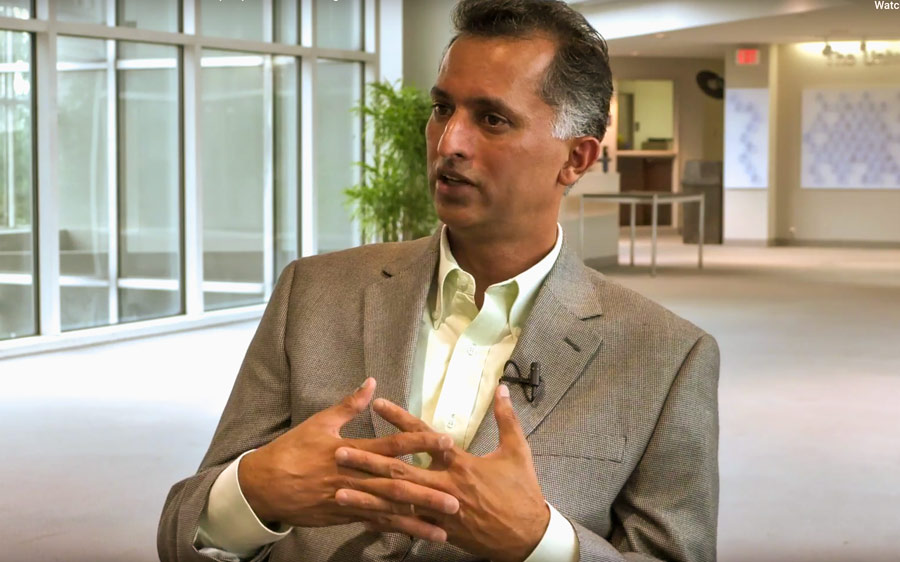
On the front lines of substance abuse prevention
In 2001, UA received an initial grant of $13.7 million — the largest in the University’s history — from the Robert Wood Johnson Foundation to develop a substance abuse prevention curriculum to be used by DARE in secondary schools nationwide. Recently, Dr. Abraham Joy (above) has been developing a polymer-based wipe enabling first responders to the scene of an overdose to detect and protect themselves from opioid residue in the vicinity; and, in the last two years, UA has received grants totaling $1.5M to train students, faculty and clinicians to better treat opioid users and their families.
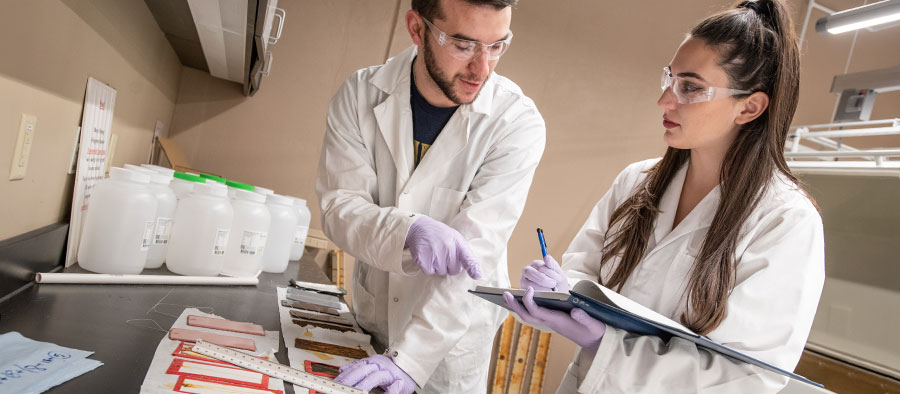
UA is home to the country’s first and only bachelor’s degree program in corrosion engineering.
Combatting corrosion
UA was among the first universities to combat the nationwide problem of corrosion, launching the country’s first bachelor’s degree program in corrosion engineering — as well as the National Center for Education and Research on Corrosion and Materials Performance (NCERCAMP), established in 2010 by a grant from the U.S. Department of Defense.
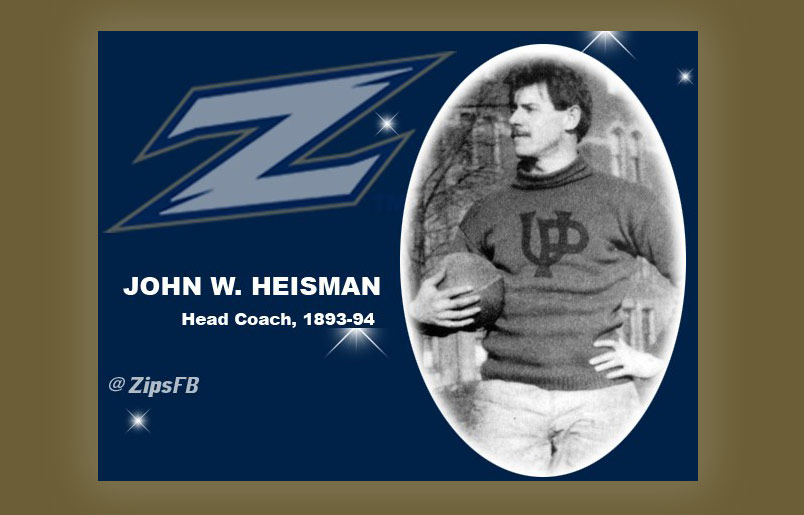
The rise of Zips Nation
In 1893, Buchtel College hired its first paid coach and athletic director, John Heisman (above), the legendary football coach, quarterback and namesake of the Heisman Trophy who has been credited with the invention of the handoff, double lateral and center-to-quarterback direct snap, a move he developed at Buchtel College. In recent decades, Akron Zips athletics teams — cheered on by their devoted fans, the AK-ROWDIES, and Zippy, one of the country’s few female mascots — have boasted Olympic athletes and brought home dozens of conference championships, individual national championships, and a men’s soccer team national championship in 2010.

From adhesives inspired by geckos’ sticky feet to snake-inspired search-and-rescue robots, UA is a world leader in the rapidly growing field of biomimicry.
World’s first
Ph.D. graduates
in biomimicry
UA is a world leader in the rapidly growing field of biomimicry, taking inspiration from nature — from birds, geckos, snakes and spiders — to inform the research and development of adhesives, color-producing additives, building construction techniques and more. In 2017, UA graduated the first students in the world with doctoral training in the field.
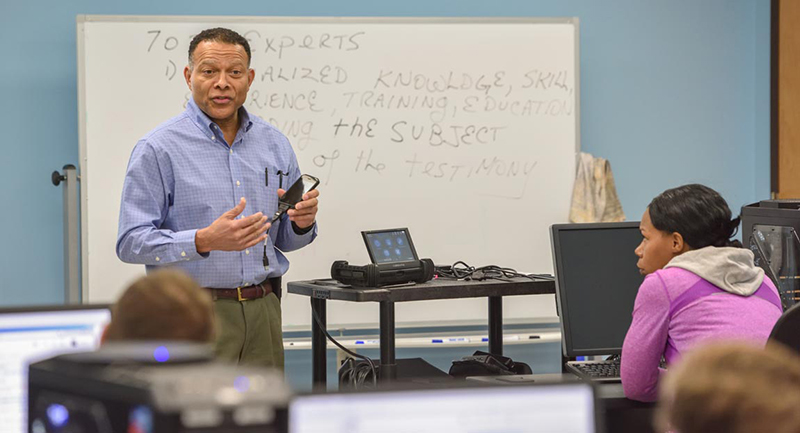
Stan Smith, associate professor of practice, teaches students about networking configuration, an important component of cybersecurity.
Leader in cybersecurity
In 2017, UA launched its bachelor’s degree in computer information systems with a focus in cybersecurity, the first degree of its kind among public universities in Ohio — and one of the first in the country to offer courses in applied cryptography, which are typically offered at the graduate level. UA is also the only university in Northern Ohio to have been designated an Ohio Cyber Range Institute Regional Programming Center, supporting the needs of cybersecurity professionals throughout the region, state and country.
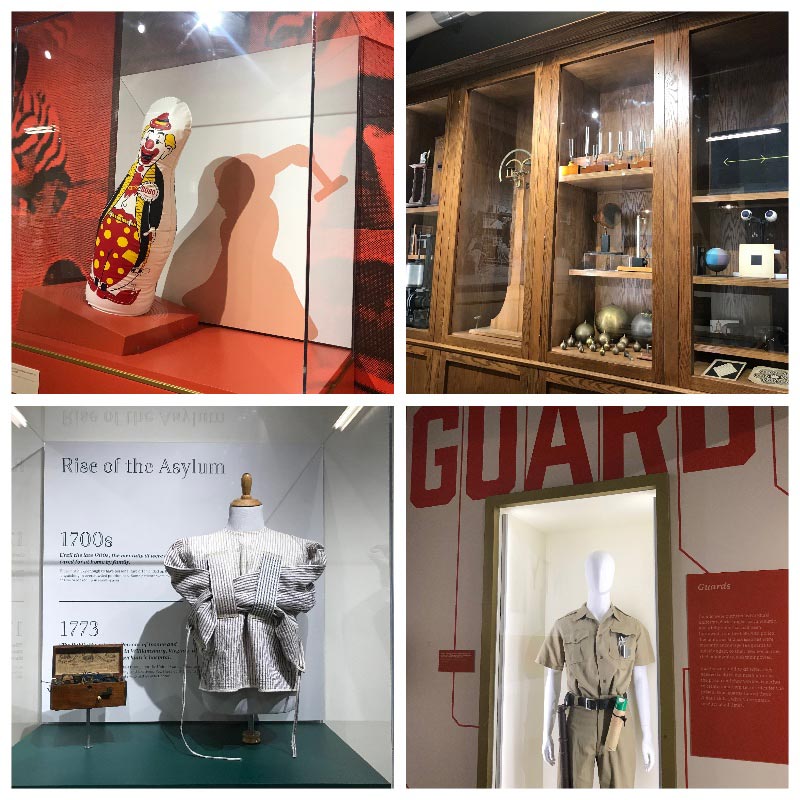
Unique psychology museum
In 1965, UA became the home of the Archives of the History of American Psychology, which are currently housed in the Drs. Nicholas and Dorothy Cummings Center for the History of Psychology, which in 2018 opened its one-of-a-kind National Museum of Psychology, and in 2019 the Institute for Human Science and Culture. Today, UA’s industrial/organizational and counseling psychology programs are among the most respected and highest ranked in the country.
Above all, it is the 180,000-plus alumni — engineers, scientists, business leaders, health professionals, teachers, artists and more — who have fulfilled the pledge of John R. Buchtel, bringing pride and honor to The University of Akron, the city and the state.
Historical images are courtesy of UA’s Archival Services.

